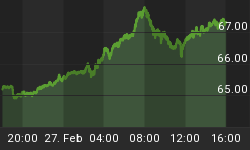Soecial Guest: Mebane T. Faber, Chief Investment Officer and Portfolio Manager

Mr. Faber is a co-founder and the Chief Investment Officer of Cambria Investment Management. Faber is the manager of Cambria's ETFs, separate accounts and private investment funds for accredited investors. Mr. Faber has authored numerous white papers and three books: Shareholder Yield, The Ivy Portfolio, and Global Value. He is a frequent speaker and writer on investment strategies and has been featured in Barrons, The New York Times, and The New Yorker. Mr. Faber graduated from the University of Virginia with a double major in Engineering Science and Biology.
Financial Repression
"An environment where interest raters are lower than inflation and you have a low or even negative interest rate environment which helps someone and hurts someone else. It hurts savers but is good for borrowers and people who have a lot of debt. The inflation eats away at that debt. It helps someone like the US government"
"Stocks and bonds like high real interest rates. They typically don't like low or negative real interest rates". Other asset classes like gold like negative real rates and have over the last decade, but not so much over the last couple of years."
Value & Momentum
Faber likes both value and momentum and believes they can work together as part of a global portfolio, particularly where they intersect. Cambria uses Shiller's 10 Year CAPE benchmark to look at equities. It is typically around 17 and is now around 27 in the US. It presently shows a lot of great valuations around the world however momentum has been in US stocks, bonds and real estate. "Right now we see a lot of opportunity, but particularly abroad".
The "Home Country" Bias
The US is only about 50% of global market cap but most US investors have a 'hometown bias" of having 70% of their portfolio in US securities. Faber has found that it consistently ranges from as low as 65 to as high as 85%. Meanwhile, when considered on a GDP basis the US is only about a fifth to 25% and on a valuation basis is the third most expensive. This would suggest the US has a headwind, especially after a six year run. An exposure of at least half to foreign investment seems more reasonable to Meb Faber.
Developed and Emerging Countries
We start with a universe of about 45 countries with reasonable liquidity. One of Cambria's funds buys the eleven cheapest countries in the world. Faber's analysis suggests avoiding countries that create large bubbles can be a critically important when viewed over the longer term because of the size of the inevitable corrections."
"One of the emotional challenges and why value works is because it is hard to do."
Classic Mistakes
- "Not Getting Out of Your Own Way!"
- Getting Caught Up In Performance,
- Not Having a Plan,
- Trying to Time Your Investments,
- Realistic Expectations.
- "Not Paying Attention to Fees"
- "Too Wedded to An Investment Style"
- Need to be Asset Class Agnostic















